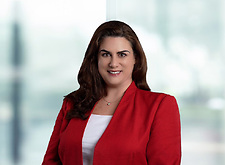Rockstars confront the “sophomore slump” recording their second album. Their first album was the culmination of a lifetime of experience – first love, heartbreak, the highs of victory, the lows of defeat. Their second album is the product of a couple months of writing squeezed between tour dates while living in the fast lane – sex, drugs, and rock-n-roll. All the while, the pressure builds. Will their second album live up to the expectations created by the first?
Fear not, dear readers. The authors of Thicker Than Water have conquered the sophomore slump. Our second post contains analysis and insights that meet – and possibly exceed – expectations.
Our first case - Matter of Estate of Ryan, 227 NYS3d 541 (Monroe County Surrogate’s Court, January 24, 2025) – is a cautionary tale of a nominated executor acting so poorly that the Court denied her application for letters testamentary based on “improvidence.” Our second case – Matter of Weber as Tr. of Michael S. Weber Tr., 220 NYS3d 620 (Saratoga County Surrogate’s Court, October 10, 2024) – highlights the risks associated with an expert witness relying on artificial intelligence.
Baby Did A Bad Bad Thing – So She Can’t Be Executor
Matter of Estate of Ryan, 227 NYS3d 541
(Monroe County Surrogate’s Court, January 24, 2025)
SCPA § 707 grants the Surrogate’s Court authority to deny letters testamentary to a nominated fiduciary based upon the nominee’s “improvidence.” (See SCPA § 707(1)(d)). The case law interpreting “improvidence” is sparse and old. Ryan is a rare example of the Surrogate’s Court denying letters testamentary to a nominated fiduciary based on improvidence.
Decedent Niss Ryan died April 4, 2023, survived by two children from her first marriage – Susan and Peter – and a stepdaughter from her second marriage – Barbara. Decedent’s Will provided that her residuary estate shall be split evenly between Susan, Peter, and Barbara, and named her stepdaughter Barbara as executor.
Following Decedent’s passing, but before seeking letters testamentary, Barbara retained counsel to sell two condominiums Decedent owned in Mexico. Barbara deposited the sale proceeds into her personal bank account and contended that she was entitled to the sale proceeds based on her understanding of “Mexican Law” and a 1989 Spanish language trust agreement which she never produced.
On September 16, 2024, approximately 18 months after Decedent died, Decedent’s daughter Susan filed a petition to be appointed as administrator C.T.A. and to compel production of Decedent’s Will. In response, Barbara filed a petition to probate the Will and to be appointed as executor. Susan objected to Barbara’s appointment, pursuant to SCPA § 707, on the grounds that Barbara is (1) improvident and (2) “unfit for the execution of the office.”
The party seeking to deny letters testamentary to a nominated executor bears a heavy burden. Per the Court in Ryan, “[i]t is well-settled – indeed, it is far more definite than well-settled, if there is such a standard – that the burden is exceedingly high on one who seeks to deny letters testamentary to one nominated as an executor.” Nevertheless, the Court found that Susan had satisfied her burden and denied Barbara’s application for letters testamentary based on improvidence.
The Court held that Barbara was ineligible to serve as a fiduciary based on improvidence because: (1) Barbara delayed 18 months before seeking to probate the Will, and (2) Barbara kept the proceeds from her sale of Decedent’s Mexican condominiums in her personal account. The Court held that these facts alone were sufficient to deny Barabara’s application for letters based on improvidence.
The Court then went on to find that Barbara’s creation of a conflict of interest between her personal interests and the interests of other beneficiaries served as a second, and independent basis, for denying her application for letters testamentary. Specifically, Barbara’s claim to the proceeds from the sale of the Mexican condominiums without producing the Spanish language trust upon which her claim was based “set up the estate for a costly turnover proceeding to claw back those proceeds” and “exposed the estate to substantial liability for estate income taxes, interest, and penalties.”
The takeaway: The standard for denying letters testamentary to a nominated fiduciary is exceedingly high. However, nominated fiduciaries place themselves at substantial risk by delaying an application for probate without good cause, commingling estate funds with their own personal funds, and taking positions adverse to other beneficiaries without substantial grounds.
Microsoft Copilot Crumbles Under Cross-Examination
Matter of Weber as Tr. of Michael S. Weber Tr., 220 NYS3d 620
(Saratoga County Surrogate’s Court, October 10, 2024)
Matter of Weber concerns the use of artificial intelligence - specifically Microsoft Copolit - by an expert witness to calculate damages in an accounting proceeding. New York applies the Frye standard for determining the admissibility of expert testimony based on scientific principles or procedures. Specifically, such testimony is admissible only after the underlying principle or procedure has “gained general acceptance” in its field. Unfortunately for the objectant in Weber and his expert, Microsoft Copilot crumbled under cross-examination from the Court and made damning admissions about its reliability.
Petitioner – a sole trustee – filed an accounting petition. The trust’s sole beneficiary – Petitioner’s nephew – filed objections to the accounting. Objectant asserted that Petitioner breached her fiduciary duties by, among other things, using a trust owned rental property in the Bahamas at the height of the tourist season for a combination of legitimate trust business and vacation. After holding that Petitioner did not breach her fiduciary duties and therefore was not liable for any damages, the Court engaged in an extensive critique of the testimony provided by Objectant’s damages expert.
As an initial matter, the Court found the expert’s calculations were “inherently unreliable, are based on speculation, hypothetical market performance, and are unsupported or outright contradicted by facts in the record.” The Court based this devastating conclusion on the following: (1) that the expert cited an outdated version of the Prudent Investor Act, (2) that the expert admitted that he was not aware of the differences between the lost capital and lost profit damages calculations, (3) that the expert’s calculation of lost profits began three years before the trust owned the rental property, (4) that the expert’s calculation failed to factor in expenses such as real estate taxes, (5) that the expert failed to consider the impact of COVID-19 on projected rental income, (6) that the expert failed to consider distributions made to Objectant, and (7) that the expert failed to perform an A.M.R. analysis to calculate hypothetical investment performance after testifying that such an analysis was the industry standard.
Although the Court had already determined that Petitioner was not liable for any damages and the expert’s testimony was not credible for the reasons set forth above, the Court continued that the expert’s use of artificial intelligence – Microsoft Copilot – to “cross-check” his damages calculation “bears further and separate discussion.” On cross, the expert could not recall what prompts he supplied Copilot to perform its calculations, he could not state what sources Copilot used to perform its calculations, and he could not explain how Copilot performed its calculations.
In response to this testimony, the Court submitted a prompt to Copilot requesting that it perform a calculation to value “$250,000 invested in the Vanguard Balanced Index Fund from December 31, 2004 through January, 31 2021.” The Court submitted this prompt on three different computers and Copilot returned three different answers.
The Court then submitted the question to Copilot “are you accurate?” Copilot responded, “I am made to be accurate within the data I’ve been trained on and the information that I can find for you. That said, my accuracy is only as good as my sources so for critical matters, it’s always wise to verify.”
In response to the follow up question, “are your calculations reliable enough for use in court,” Copilot admitted, “[w]hen it comes to legal matters, any calculations or data need to meet strict standards. I can provide accurate info, but it should always be verified by experts and accompanied by professional evaluations before being used in court . . .”
The Court then announced the following rule: “counsel has an affirmative duty to disclose the use of artificial intelligence and the evidence sought to be admitted should properly be subject to a Frye hearing prior to its admission, the scope of which should be determined by the Court, either in a pre-trial hearing or at the time the evidence is offered.”
The takeaway: The use of artificial intelligence to generate an expert opinion creates substantial risk that the opinion will be barred under the Frye standard. If an expert uses artificial intelligence despite the risk, the proponent of the testimony must disclose to the Court that the opinion was prepared using artificial intelligence and counsel must be prepared to prove that artificial intelligence has “gained general acceptance” in the applicable field at a Frye hearing. The opponent of expert testimony should cross-examine the expert concerning the use of expert testimony and object to the admission of any opinion generated through artificial intelligence.
Thicker Than Water will return soon and does not use artificial intelligence in the creation of its posts; only human creativity, bad puns, and spell check.
Disclaimer:
This blog is a form of attorney advertising. Hodgson Russ LLP provides this information as a service to its clients and other readers for educational purposes only. Nothing in this blog should be construed as, or relied upon, as legal advice or as creating a lawyer-client relationship.



